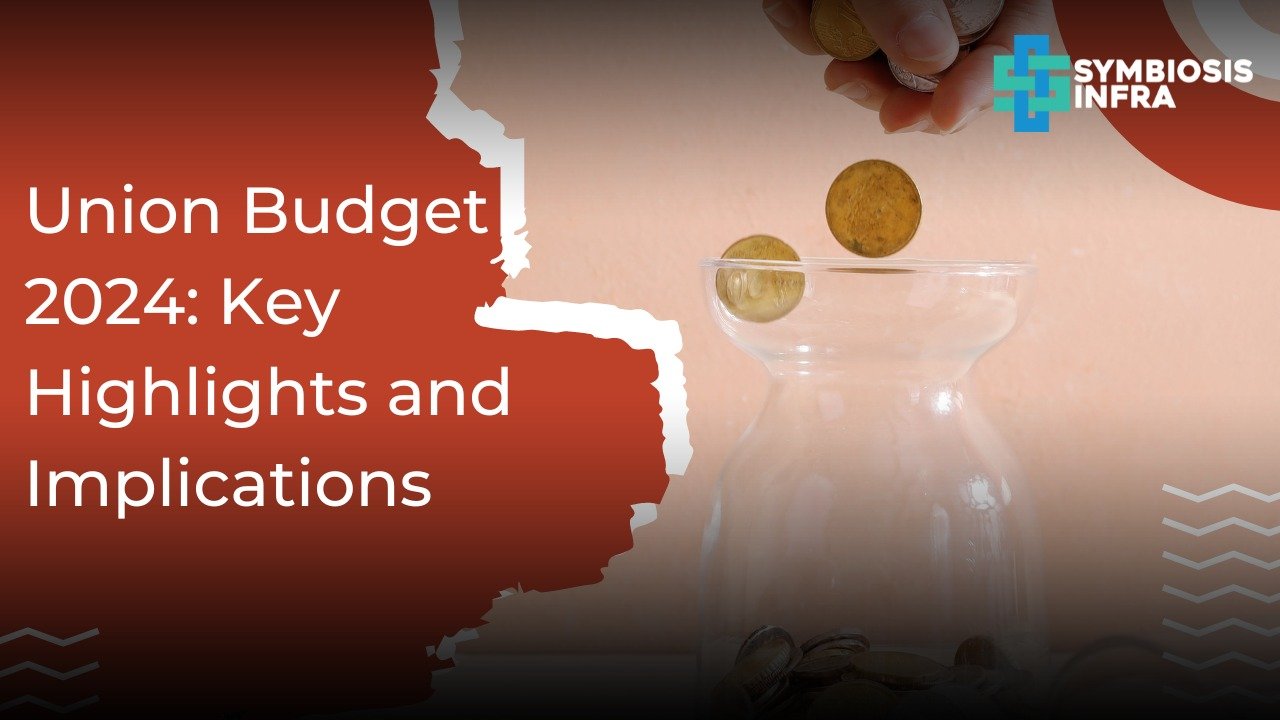As the Union Budget of India for the fiscal year 2024 is unveiled, citizens, businesses, and policymakers eagerly await its revelations. Following the budgetary trends of Union Budget 2023, this year’s allocation is poised to shape the country’s economic trajectory and address pressing socio-economic challenges. Let’s delve into the key highlights and implications of the Union Budget 2024.
Union Budget: A Recap
It is necessary to consider the important policies and allocations of Union Budget 2023 before delving into the specifics of the Union Budget of India. The prior budget placed a strong emphasis on promoting sustainable development, accelerating economic growth, and strengthening the healthcare infrastructure. Infrastructure, healthcare, and education investments set the stage for advancement and resilience in the face of uncertainty around the world.
Union Budget 2024: Implementing Evolution
Union Budget 2024 adds new tactics to adapt to changing socioeconomic environments while strengthening the groundwork laid by its predecessor. With a renewed emphasis on innovation and inclusive growth, the budget aims to advance India’s economic dominance on the world stage.
Key Highlights of Union Budget 2024
- Healthcare Revolution: Building on the lessons acquired from the COVID-19 pandemic, the Union Budget of India provides significant expenditures to improve healthcare infrastructure, vaccine development, and disease surveillance. A strong healthcare ecosystem is critical for ensuring public health and promoting socioeconomic resilience.
- Infrastructure Redesign: Recognizing the critical role of infrastructure in fostering economic growth, the Union Budget includes significant funding for infrastructure development initiatives. Investments in transportation, energy, and digital infrastructure are expected to boost connection, productivity, and competitiveness.
- Education Revolution: The Union Budget of India emphasises the importance of quality education in developing human capital and promoting innovation. Investments in education infrastructure, skill development initiatives, and digital learning platforms seek to empower young people and accelerate socioeconomic advancement.
- Sustainable Development: In line with global sustainability objectives, the Union Budget 2024 prioritises environmental conservation and renewable energy initiatives. Investments in sustainable energy technologies, afforestation projects, and climate resilience measures demonstrate India’s commitment to a greener future.
- Digital Transformation: Using the power of technology, the Union Budget lays the groundwork for a digital revolution across industries. Investments in digital infrastructure, e-governance efforts, and digital literacy programs are intended to close the digital divide and move India toward a digitally empowered society.
Check Out: Deen Dayal Jan Awas Yojna Haryana: Affordable Housing Scheme
Implications of Union Budget 2024
Certainly! The ramifications of Union Budget 2024 are far-reaching, affecting many elements of the economy, society, and government. Here are some important implications to consider:
- Economic Growth: The budget’s emphasis on infrastructure development, health care, and education is expected to boost economic activity. Investments in these industries create jobs, increase productivity, and attract private investment, all of which contribute to overall economic growth.
- Healthcare Resilience: With increased funding for healthcare infrastructure and research, the Union Budget of India aims to strengthen the country’s healthcare system. This could result in increased access to high-quality healthcare services, better disease management, and greater resistance to future health crises.
- Education Empowerment: Investing in educational infrastructure and skill development projects has a substantial impact on human capital development. A well-educated and skilled workforce.
- Digital Transformation: The budget’s emphasis on digital infrastructure and e-governance programs represents a shift toward a digitally empowered society. This could result in improved service delivery efficiency, expanded access to digital services, and greater openness in governance procedures.
- Sustainable Development: The Union Budget 2024 demonstrates India’s commitment to sustainable development by prioritising environmental conservation and renewable energy programs. This could result in lower carbon emissions, higher environmental quality, and greater resilience to climate change.
- Social Welfare: The budget’s provisions for social welfare schemes and poverty reduction programmes have ramifications for inclusive growth and social justice. Targeted interventions for excluded populations can help reduce inequality and enhance social cohesion.
- Fiscal restraint: While addressing critical issues, the Union Budget seeks to preserve fiscal restraint. Long-term fiscal sustainability requires effective public finance management, subsidy rationalisation, and revenue generation strategies.
- Investor Sentiment: Budget policies and allocations have the potential to influence investor sentiment and company confidence. Clarity in regulatory frameworks, investment incentives, and entrepreneurship support can all boost domestic and foreign investment, thereby promoting economic growth.
Overall, the implications of the Union Budget 2024 are diverse and reliant on the effective implementation of proposed programs and initiatives. As stakeholders consider the financial provisions and their ramifications, collaboration between the government, private sector, civil society, and citizens will be vital to attaining the goal of a wealthy and inclusive India.
Check Out: top real estate agent guide
Conclusion
As the Union Budget 2023 unfolds, its impact is seen throughout the country’s socioeconomic fabric. The budget, with its prudent resource allocation and visionary approach, opens the path for a brighter and more resilient future. As stakeholders consider the implications of the Union Budget 2024, teamwork, innovation, and adaptation emerge as guiding concepts for India’s road to success.
FAQs
- What is the Union total budget?
The revised estimate for overall expenditure is Rs 44.90 lakh crore. Revenue receipts of Rs 30.03 lakh crore are projected to exceed the budget estimate, indicating strong economic growth and formalisation.
2, Who is the father of the Indian budget?
R. K. Shanmukham Chetty delivered Independent India’s first budget on November 26, 1947.
3. Who released the first budget in India?
R. K. Shanmukham Chetty presented the first union budget of independent India on November 26, 1947. Total sales were ₹171.15 crore, while the fiscal deficit was ₹24.59 crore.
